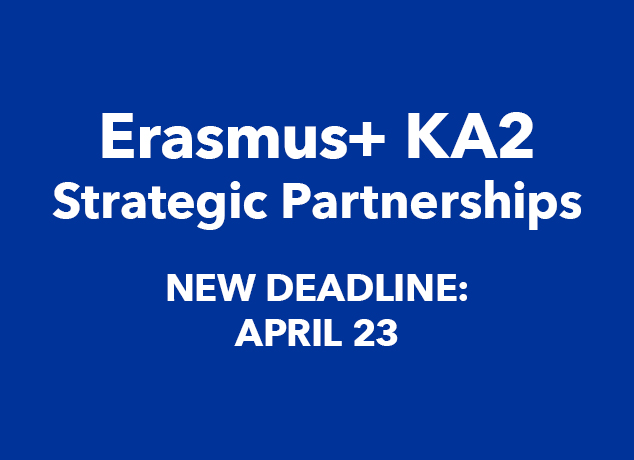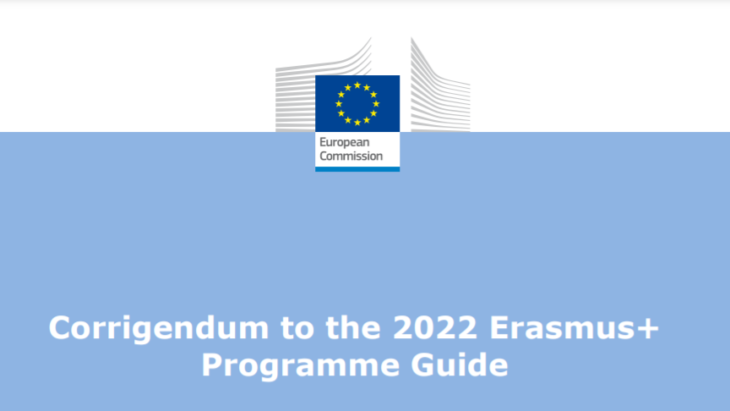These days, on December 2nd and 3rd, the “4th Forum on Vocational Education – Europass and Euroguidance” is taking place in Warsaw.
In preparation for the Polish Presidency of the EU Council, the event serves as an important opportunity to reflect on digitalization as a challenge for vocational education.
The President of ETN, Luciano Marino, was one of the speakers at the event. He delivered a presentation highlighting the immense potential of generative AI and introduced the innovative Smart Labs.
Let’s dive deeper into what this is all about…
What are Smart Labs, and what is their main purpose?
Smart Labs represent a significant innovation in the context of international student mobility. In a revolutionary moment of technological innovation, we realized we needed to seize the opportunity to create a meaningful learning experience during mobility that breaks away from traditional models. We created Smart Labs, innovative learning experiences aligned with ongoing transformations. Through these labs, students can learn no-code tools like Airtable, platforms such as Softr or Bubble, generative AI, Python programming and machine learning, the lean approach for startup creation, or explore no-code tools for DNA comparison and analysis, such as the Galaxy platform. They can also engage with economic scenarios through structured business games.In this context, students follow a structured path with an initial project, assigned tasks, and a final output. Gamification elements are included to make the experience more engaging and interesting. The goal is to project students into the heart of current innovation, familiarizing them with the technologies and methodologies that are transforming the world.
What specific skills can students acquire through Smart Labs?
Students acquire technical skills related to the most advanced technologies and transversal skills derived from completing assigned tasks, teamwork, solving complex problems, and creating various outputs such as videos, narratives, podcasts, blogs, graphics, and images.
How do Smart Labs use no-code technology for learning?
No-code technologies make it possible to immediately transform even complex ideas into functional outputs without needing to write code. In the creation of complex apps, this shifts the focus to functionalities and user experience, encouraging students to explore innovative solutions and quickly test different options. This process becomes stimulating and creative, teaching them to approach the same problem from various angles. It also teaches them to think sequentially while maintaining a holistic view of the problem itself.
What thematic areas do Smart Labs cover?
The areas are varied: from machine learning to genomics and bioinformatics, from logistics to startup creation processes, from machine learning to business management, from developing web applications using no-code tools to creatively and cross-functionally implementing generative AI. The Smart Lab catalog is extensive and constantly updated. We follow technological innovation and create new labs to offer experiences aligned with extraordinary ongoing transformations and innovations.
How do Smart Labs prepare students for future challenges?
Simply by giving them a taste of the future. We provide them with the ability to become “smart,” cultivating a mindset of continuous innovation, exploring new possibilities, and equipping them with tools to create and test immediately. This aims to develop a mindset and attitude toward innovation, exploring new and alternative solutions, and engaging in continuous and smart learning.
Can you describe a practical example of an activity conducted during a Smart Lab?
During a Smart Lab, students are divided into small, often multinational teams. There’s an initial session for icebreaking and brainstorming project ideas, followed by dividing the project into tasks. Each team member is assigned a role, and task activities begin, producing intermediate outputs according to the lab’s defined procedures under the supervision of a training tutor. The results of individual tasks are uploaded onto a shared platform and discussed with online experts through brief pitches and tangible outputs. Finally, the project is implemented and presented. The entire process is enriched with gamification elements to encourage competitiveness and active participation. The platform allows for video sessions with experts and remote participation by teachers. The final project results are then made available on the platform.
How do Smart Labs promote interdisciplinarity?
Smart Labs promote interdisciplinarity through a multi-skill approach touching on diverse disciplines. For example, the “Game of Business” lab addresses topics like marketing, administrative management, logistics, and human resources. The genomics and bioinformatics lab covers chemistry, biology, computer science, and criminology. The AI Revolution lab includes artistic creation, literary production, video editing, and storytelling. Each lab is designed to combine different disciplines, fostering students’ ability to approach problems and solutions from a 360-degree perspective.
What advantages do Smart Labs offer compared to traditional learning methods?
There are many, but they don’t replace traditional learning methods; rather, they are a necessary complement. By promoting teamwork in a stimulating and goal-oriented environment, Smart Labs develop various transversal skills, such as problem-solving, negotiation, and logical-deductive reasoning. Solving tasks and presenting results foster creative and technical abilities, lateral thinking, scenario forecasting, storytelling, and public speaking. The advantages—better described as enrichment compared to traditional teaching methods—mainly involve offering students active participation, engaging with real and tangible problems, and contributing actively to their resolution.
What is the impact of Smart Labs on students’ personal and professional development?
Smart Labs represent an intensive pathway to understanding ongoing transformations in various sectors. Comprehending how technologies are changing and their future impact increases personal awareness and guides students in relation to their future aspirations. The multidisciplinary approach, oriented towards problem-solving, fosters a holistic view of issues and encourages curiosity and continuous learning. Smart Labs guide students innovatively, placing them at the cutting edge of current changes and confronting them with opportunities and challenges brought by global competition and significant transformations.
How are the themes of Smart Labs chosen?
The collaboration between two of our companies, Axonforce and its AI Research Lab, and ETN School, which specializes in innovation in education, generates ideas that are then incorporated into Smart Lab designs. Listening to ETN’s partner schools across Europe also inspires the development of new labs. The lab design process carefully considers and transforms into knowledge everything happening as a result of major transformations, such as AI, no-code technologies, or processes of disintermediation and disruption. Smart Labs thus provide a forward-looking view in terms of themes, experiences, and skills, representing a significant added value to students’ education systems.



















